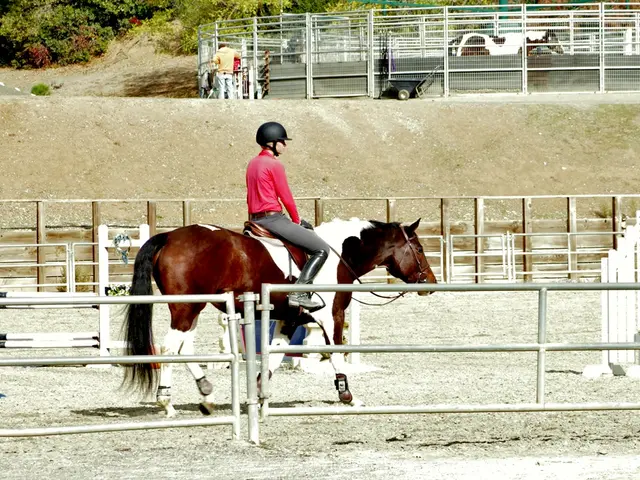Displaying Competitive Spirit: Revealing a Passionate Approach
Germany Mulls Olympic Comeback: Berlin, Munich, Hamburg, and North Rhine-Westphalia Urge Consideration
Germany finds itself at the precipice of revisiting its hosting duties for the Olympic Games, with a quartet of regions—Munich, Berlin, North Rhine-Westphalia (NRW), and Hamburg—stepping forward with proposals for hosting the Olympics and Paralympics either in 2036, 2040, or 2044.
The bids, anchored in sustainability, transparency, and climate neutrality, showcase a renewed enthusiasm for embracing global sporting events. The imminent declaring of Berlin's bid at the Olympic Stadium where the 1936 Games took place sets the stage for what could be a multi-city competition.
Berlin's bid, christened "Berlin+," champions historical relics, such as beach volleyball at the iconic Brandenburg Gate and water sports in Grünau—locations of historical significance from the 1936 Games. The bid transcends Berlin's borders, securing the backing of nearby states: Brandenburg, Saxony, Mecklenburg-Vorpommern, and Schleswig-Holstein.
The alliances between regional powers such as North Rhine-Westphalia, Hamburg, and Munich further bolster Germany's bid landscape. The collaborative approach fostered among these regions not only enhances Germany's chances but also serves as a testament to the country's unity in diplomatic, economic, and sporting endeavors.
Sustainable Olympics and Paralympics continue to be paramount for Germany, and Berlin’s sports minister Iris Spranger, alongside other officials, has emphasized the need for minimal new construction and climate-neutral practices. Aspirations for citizen participation and transparency form an integral part of these bids, with local populations and authorities expected to play a pivotal role in the planning and decision-making processes.
Much is at stake for Germany, with historical sensitivities serving as critical considerations, particularly given the controversial 1936 Berlin Olympics and the tragic 1972 Munich Games. The German Olympic Sports Confederation (DOSB) will evaluate all bid concepts by September 2025, laying the groundwork for a single German candidate to emerge by the fall of 2026. As Germany ponders a return to the global athletic stage, navigating these complexities with sensitivity and responsibility will undeniably rank among its top priorities.
Sources: ntv.de, DOSB
- North Rhine-Westphalia
- Berlin
- Munich
- Markus Söder
- Kai Wegner
- Daniel Günther
- Olympic Games
- Paris
- Markus Söder, the Premier of Bavaria (Munich), has expressed his support for a potential bid, emphasizing the state's experience in hosting major events such as the 1972 Munich Olympic Games and the prospect of showcasing its modern infrastructure to the world.
- Kai Wegner, the Prime Minister of North Rhine-Westphalia, joins the captivating pursuit, citing the state's vast industrial resources and previous successful collaborations with neighboring regions as assets that could contribute significantly to the Olympic bid.
- Meanwhile, Daniel Günther, the Minister President of Schleswig-Holstein, has also jumped on the bandwagon, stating that hosting the Olympic Games could trigger a wave of growth and innovation in his region, potentially paving the way for it to play an active role in the sports realm, the likes of which it has never seen before.
- Despite the passionate bids from various regions, the responsibility of selecting a single German candidate rests with the German Olympic Sports Confederation (DOSB), with multiple sources indicating that Berlin's bid, backed by several neighboring states, is a favored contender, echoing the sentiment that "Berlin+," with its historical significance and focus on sustainability and transparency, has set a strong precedent for the competition.
- Amidst this flurry of sporting aspirations, the upcoming Paris Olympics in 2024 serves as a timely reminder of the immense challenges and lessons that lie ahead for the contending cities, urging them to remain mindful of the global spotlight while shaping their strategies for the international athletic stage, with a sensitivity and responsibility befitting the stature of the Olympic Games.








